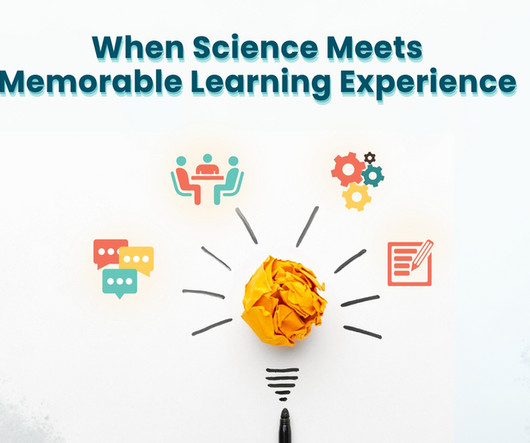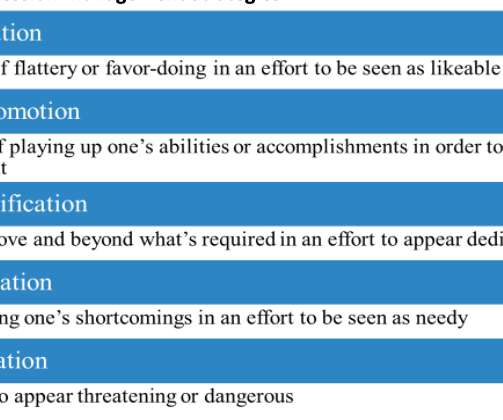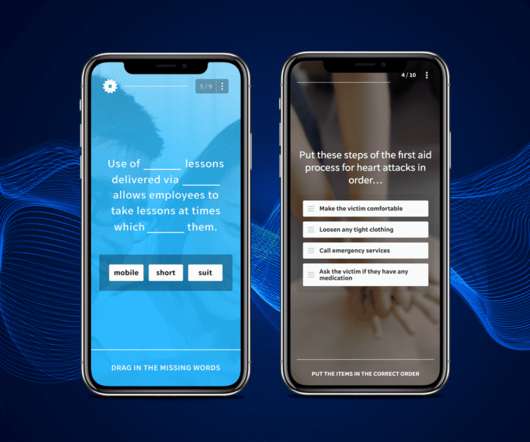What 21st Century Science Says About Memorable Learning Experience At Work
Thinkdom
FEBRUARY 29, 2024
Modern science, especially in learning & development, has come a long way in the last couple of decades. ,, Learning & behavioural sciences overlap more than we initially thought. Let’s first understand how human beings learn and then focus on some strategies that we can use to make professional learning stick.






















Let's personalize your content